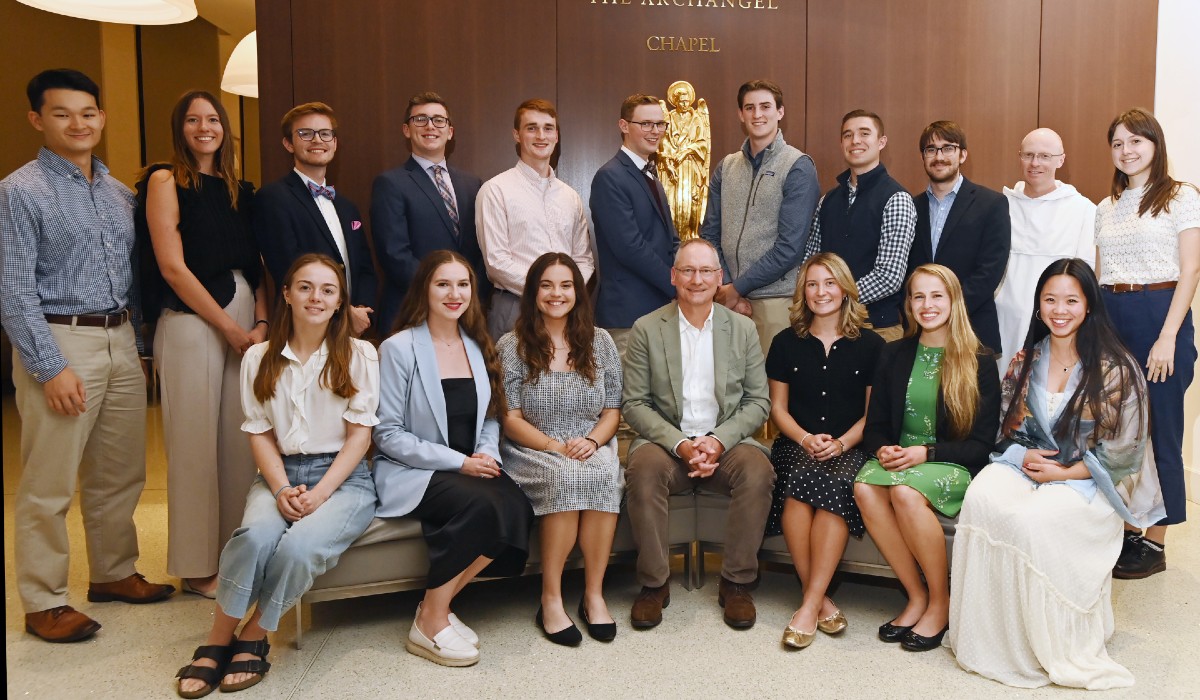June 27, 2025

By Flavio Felice, Michael Novak Distinguished Visiting Scholar-in-Residence, Busch School of Business, The Catholic University of America.
At the end of this course, we presented some best practices regarding the educational offerings of the Busch School of Business at The Catholic University of America in Washington, D.C., always with a focus on the civic function of academic institutions. Today, we introduce the Röpke-Wojtyla Program. This program is directed by Professor Frederic Sautet, who is the author of numerous essays on business economics and the editor of the American edition of Israel Kirzner's works.
The names Wilhelm Röpke and Karol Wojtyla immediately convey the essence of the study program. While we all know Wojtyla, at least the Wojtyla who became Pope John Paul II and his social teachings, not everyone is familiar with Röpke and the significant role he played in the theoretical development of the social market economy and the moral, material, and institutional reconstruction of the Federal Republic of Germany following the tragedy of World War II.
Röpke was a prolific German economist and social scientist, born on October 10, 1899, in Lower Saxony, and died on February 12, 1966, in Geneva. He taught economics and sociology at several German universities until 1933, when he was expelled from all academic activities due to his anti-Nazi views. At this point, he decided to move first to Belgium and then to Turkey, where he taught economics at the University of Istanbul.
In 1937, he accepted an invitation to join the group of intellectuals at the Institut de Haute Études Internationales in Geneva, where he worked until his death. In Geneva, he had the opportunity to engage with scholars of the caliber of Ludwig von Mises, Hans Kelsen, Guglielmo Ferrero, and Luigi Einaudi. Röpke attempted to develop a theory of social order, which he called "Civitas humana". He explicitly referred to the social doctrine of the Church, particularly the principle of subsidiarity, and to the experiment conducted during World War II by a group of German intellectuals centered around Walter Eucken and the journal "Ordo." Their system, known as Ordotheorie or Ordoliberalismus, was later referred to as the Social Market Economy.
The Röpke-Wojtyla Scholarship is a program hosted by the Catholic University of America, with students from 34 colleges and universities across the United States, including several Ivy League institutions. The program aims to nurture future intellectuals and business leaders who can understand market dynamics through the lens of the Church's social doctrine, critically engaging with the great classics of social sciences. Throughout the year, the fellows engage in discussions on the most significant issues in historiography, philosophy, economics, political science, and sociology.
The Röpke-Wojtyla scholarship invites young people to explore important social philosophy issues, such as fostering a free and virtuous civil society, understanding the civil and civilizing aspects of trade, and grasping the reasons behind the ongoing tensions between markets and communities. Furthermore, the scholarship aims to encourage students to critically engage with intellectual traditions and authors they might not have encountered during their studies. These include the Church Fathers, the great figures who shaped medieval debates on trade and the market, the origins of private property, the impact of labor theory of value on social movements, critiques of political economy, Michael Novak's business theology, Röpke's analyses of market order, and Karol Wojtyla's personalism.
The program is divided into four sessions that take place throughout the entire academic year. In particular, the final session is always held in Rome, at the Catholic University campus. For the current academic year, the final session in Rome will take place from June 6 to June 11.
I believe it is worth noting that such a study program today aligns with the special attention the current pontiff has immediately shown to the social doctrine of the Church and to a particular approach to its study; an approach I would describe as problem-solving and prudent.
On May 17, at the annual meeting of the Centesimus Annus pro Pontifice Foundation, the Holy Father outlined an epistemological profile of the Church's social doctrine, emphasizing its anti-perfectionist and fallibilist nature, and closely linking it to the social sciences.
The social doctrine of the Church, as stated by Leo XIV, does not aim to "raise the flag of truth" but rather to offer a "critical" approach to understanding problems, fostering multidisciplinary scientific dialogue. The Röpke-Wojtyla program fits into this precise methodological context, beginning with the Christian vision of a giant in the social sciences, Röpke, and the methodological personalism of Wojtyla. It clearly demonstrates the full civic value of the humanities as they align with the academic mission.
This article was originally published in Avvenire (a daily newspaper of the Italian Episcopal Conference).
Other articles by Dr. Flavio Felice
- Virtue Training: How to Invigorate the Secret of a Free Society
- Family Businesses and the Common Good: Values to be Passed On
- The Civil Economy: A Bridge Between the Shores of the Atlantic Ocean
- Catholic Finance with a Critical Mind
- There Is No Business Without Values: Bringing New Lymph Training to the Market
Flavio Felice is a Full Professor of History of Political Doctrines at the Humanistic, Social, and Education Department of the University of Molise (Campobasso) and president of Tocqueville-Acton Centre Studies. He is currently the Michael Novak Distinguished Visiting Scholar-in-Residence at the Busch School of Business at The Catholic University of America.
flavio.felice@unimol.it
flavio.felice@unimol.it
